Norfolk-based Inspiration Trust is proud of its reputation as a “knowledge-based” multi-academy trust – evidenced by one of the mission statements fronting their slick website: “Securing literacy and learning through a knowledge rich curriculum”.
But if you think that will make it easy to squash their director of education into an ideological box, think again. Labels don’t easily stick to Christine Counsell. She dismisses the knowledge-skills dichotomy as “just nonsense”, insisting that her own “very expansive” notion of knowledge “actually embraces the notion of skills”.
Christine Counsell is not an ideologue. She may be an idealist, however. The former teacher-trainer at Cambridge University is on a mission, gradually assembling a dream team of high-profile subject nerds to write an entire curriculum, from primary through to key stage 3, which will solve the problems of children unable to interpret texts about dodos in their year 6 SATs, or analyse a romantic sonnet at GCSE.
“I feel quite passionate about the broad curriculum in key stage 3 serving attainment in GCSE” she explains.
As it turns out, this is something of an understatement.
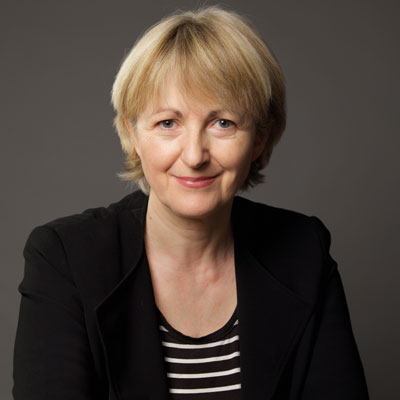
The divisive ED Hirsch is one of the theorists upon whom she draws, an educationist who seems to have the power to cleave the community into two camps.
Depending on which side you sit, Hirsch is the antidote to years of child-centred learning gone mad, in which knowledge was deprioritised and pupils were encouraged to come up with their own interpretations of debates they barely understood. Or he advocates rote learning and a narrow (white, male, middle-class) cultural canon, imparted through direct instruction from the front of the classroom to unquestioning children sat obediently in rows.
Despite her admiration for the man, Counsell sits uneasily on either side of this overly-polarised debate.
It’s his psychology of background knowledge that is important, she insists, in an attempt to disassociate him from “that list of names and facts and statements in the back of his 1988 book, Cultural Literacy, and the subtitle of the book: “What every American needs to know.”
“Before you know it, you’ve got some kind of, you know, American cultural imperialist project,” she says. “But that’s not what the book is chiefly about.”
The most important thing to take from him, she insists, is the idea that “knowledge is sticky” and forms “schemata, which are lots of subsurface associations”. When people read, the words take meaning because of underlying associations we have accumulated.
The perfect, diverse history curriculum is almost impossible
She gives the infamous example of the year 6 SATs in 2016, where some primary teachers kicked up a fuss about a passage on the dodo, saying it was inaccessible to pupils.
The problem wasn’t the test, she maintains, it was the fact that too many schools have narrowed their primary curriculum in the false belief that focusing intensively on literacy and maths will be the best preparation for SATs. Her “slogan” for how Inspiration manages the competing demands of test accountability versus good education is “broaden the curriculum in order to do well in the tests”.
“They need to do lots of history, geography, RE, science, music and art – masses of it,” she insists. “Otherwise, they’re not going to spot the words ‘paradise’ or ‘dodo’.”
She is wary of the danger of drifting “into a horrible instrumentalism” and is adamant that curriculum design must not aim solely at test success.
“They need to do those things because they’re wonderful in their own right, and that’s what primary education should be all about; understanding the world,” she says.
“We have to at some point stop throwing the kitchen sink at year 6 and year 11.”
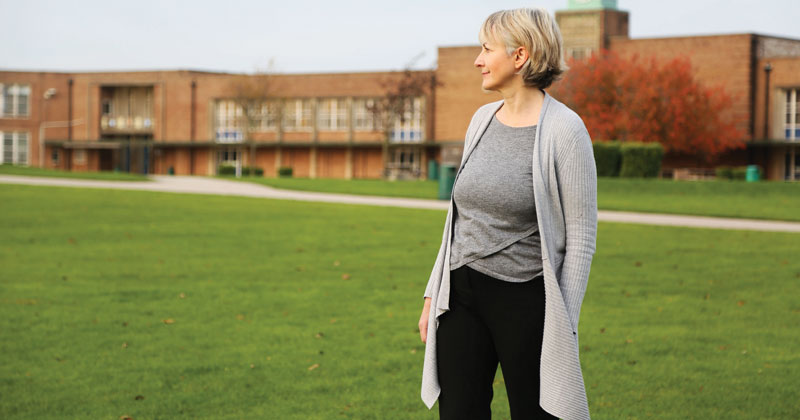
Echoing Amanda Spielman, who is currently spearheading Ofsted’s review into what makes a great curriculum, she exudes optimism that a broad, balanced education will also lead to test success, believing that accountability measures and good curriculum delivery are “ultimately compatible”.
“To say that children should be studying EBacc subjects in key stage 3 in order to do well at the EBacc is a classic case of very, very poor curricular theorising,” she explains. “A curriculum doesn’t work like that. The way in which curriculum works is through the indirect manifestation of knowledge.”
But what knowledge? The new GCSE curricula have been criticised for being too old-school, upper-middle class, establishment-English, too culturally narrow.
We have to at some point stop throwing the kitchen sink at year 6 and year 11
At this point she insists we need to “go beyond Hirsch” to Michael Young, who posits knowledge as something that “escapes its origins; it’s there for everybody. It isn’t just the preserve of the people who hold it.”
She advances the argument that we must teach the established canon to give pupils the chance to reshape it: “They can’t become part of the argument if they don’t know what they’re arguing against.”
To keep questing after “the perfect, diverse mixture of literature, or the perfect diverse history curriculum” is “almost impossible”. The “most crucial truth” however, is to make sure pupils understand that “what I’m teaching you now is not all there is”.
Her vision of knowledge and teaching, and the eternal evolution and malleability of the canon as part of our constant “pursuit of truth” is infused with hope, and echoes her description of the best kind of teacher, who leaves you with two emotions: “Awe at the expanse of human knowledge that we don’t yet know, and humility at our limits to know.”

Counsell read history at Edinburgh before training as a teacher in Cardiff and working at comprehensive schools in her home county of Gloucestershire, and specialises in teaching history in post-conflict zones. She has done a lot of work in Lebanon and Cyprus “helping communities of history teachers after a terrible conflict or continuing latent conflict to work out how to teach history in that context.”
She attributes her success in this area to the way she teaches history, “with a strong emphasis on the disciplinary as well as the substantive, and handling the fact that it has to be about argument and debate. And you can’t avoid the fact that there is no mono-narrative.”
Counsell was recruited to Inspiration Trust in 2016, relocating from Cambridge with her orchestra-conductor husband. The job was appealing for the chance to “pull various strands together that don’t often get pulled together: curriculum, teaching and learning, teacher training”.
Teaching often goes wrong if we plunge into getting children to have an argument about something and they don’t know enough
Prior to that, and after a spell as a local authority advisor responsible for primary and secondary schools in Gloucestershire, she worked for 19 years at Cambridge University, training up experienced teachers “as curriculum theorists, as people who are knowledgeable about research, as about people who are passionate in building subject communities”, a role she says is not dissimilar to what she’s doing now.
Her current responsibilities include curriculum, teaching and learning, teacher development and teacher training.
Pedagogy and curriculum shouldn’t be separated, she explains, as how you teach is necessarily different for each subject. “You’re in a disaster zone if you start trying to have a homogenous approach to teaching and learning.”
Direct instruction, for example – a teaching technique developed by an education professor called Siegfried Engelmann – works very well in some contexts, such as catch-up work around literacy or imparting basic components of mathematics, but “would not be very helpful at all for teaching secondary school history”.
“If I’m trying to understand, for example, an empire in history, then it gets really quite tricky,” she explains. “What you want to be doing in history teaching is problematising a word like ‘empire’. You want children to understand how the word gets used and how slippery and interesting it is by getting them to question and ask.”
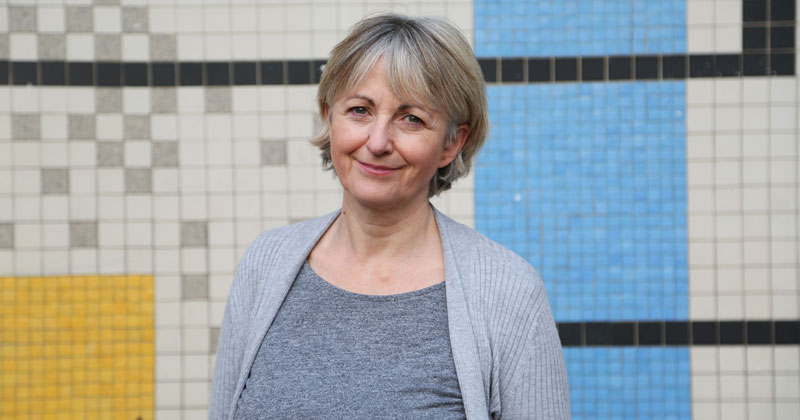
This doesn’t eschew the need for knowledge, however. Quite the contrary. “I think teaching often goes wrong if we plunge into getting children to have an argument about something and they don’t know enough.”
While rejecting my attempt to pass off direct instruction as a “fad”, she’s happy to apply the term to other practices: “I would call knowledge organisers a fad”. This is not to deny they can be “quite useful in some circumstances, but they’re about one per cent of the business of thinking about knowledge”.
Their potential dangers include confusing “the core and the periphery”, turning learning into “something quite arid and dry” or oversimplifying complicated concepts, particularly in the arts and humanities. The core knowledge you want pupils to remember is supported by an equally important “hinterland”, she explains.
“The little examples, the stories, the illustrations, the richness, the dwelling on this but not that, you know, and the times when you as a teacher go off-piste with your passion”.
Do you just drill over the features of sonnets for two years? Do you drill them in that particular sonnet?
Brilliant teaching and learning “that just lights children up and makes them receptive because it’s so fascinating” is partly about getting the right balance “between input from the teacher, and the child responding and acting and doing and applying,” she says.
But are the new GCSE exam specifications not so packed with knowledge that it must be crammed, leaving little time for debates of this kind?
“I don’t buy that at all,” she retorts. “It’s perfectly teachable within two or three years, but more crucially it’s more teachable if you’ve got lots of background knowledge. That’s the point.”
But what options are open to teachers whose pupils have not progressed through a perfectly designed all-through curriculum?
She accepts that students must be prepared for the “fiddly demands” of standardised tests, but is still sceptical that making test preparation the primary focus is a successful strategy.
“It is confusing the exam mark scheme and the things that you have to do to pass the test with a progression model,” she says. “It’s imagining that by practicing those things a lot you’re going to get better, when what’s really going to make you better is that subsurface stuff.”
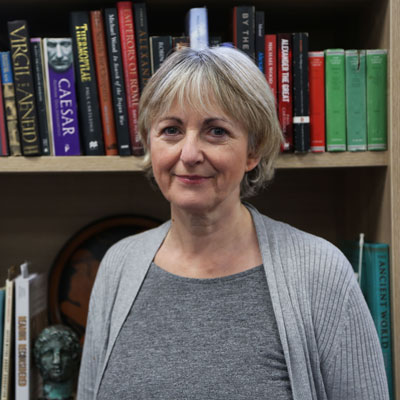
“If you imagine a child in year 10 and for whatever reason they haven’t been taught well or enough, and they’re facing having to comment on an Elizabeth Barrett Browning poem. Do you just drill over the features of sonnets for two years? Do you drill them in that particular sonnet?”
She references one of her English subject specialists, Summer Turner, who would advise that the answer is “actually to read a few more sonnets”.
Counsell’s team comprises two English staff, two history, two science, one RE and one music director, with other subjects planned for next year. She intended to recruit Ebacc subject specialists first, but “found a really stunning RE and philosophy person” and ended up hiring them instead.
The teachers have a dedicated curriculum centre in which to work, but are often out and about in schools, imparting training, working with subject teachers, and building “the kinds of vibrant, scholarly, active subject communities” that they hope will inspire teachers to get really excited about their subject, and their profession.
The pupils attending Inspiration Trust’s 14 schools are no more privileged than those in other areas of the country. In fact, they span one of the opportunity areas that have been marked out by the education secretary due to various deprivation measures.
So is it really the case that the new “fat” GCSE specifications are too demanding, or does it just need a dream team of dedicated experts working tirelessly to crack the formula?
Spielman seems to have faith in Counsell, having invited her to be part of a select advisory panel to her curriculum review that includes No More Marking’s head of education Daisy Christodoulou and Sam Twiselton, director of Sheffield Institute of Education.
And at least with this approach they won’t need to redesign their entire curriculum the next time some education secretary decides it’s time to reform standardised testing.
It’s a personal thing
What’s your escape fantasy?
Borneo. I’ve been there before but I’d like to go back. It’s one of the few places I’ve been in the world where it’s completely silent. And also the orangutans are rather wonderful to look at. We stayed in the jungle. At night, there is this silence that like nothing else.
What was your position in the family growing up?
I was the youngest, so I was the little annoying sister. I’m much, much younger than my brother and sister, so I was very spoiled. And I think I was very lucky because my parents gave up, in a good way, by the time the third child came along. They were deliciously relaxed. So my brother and sister had all the battles, and I think I had a much better time.
Favourite thing about Norfolk vs Cambridge
Thetford Forest and Holkham Bay, definitely. Oh, and the A11 is a much nicer road than the A14.
What would you have done if you hadn’t gone into education?
That’s easy; I would have been an astrophysicist.
Who was the teacher who most influenced you?
Mr Walker, my English teacher when I was nine, at St Johns-On-The-Hill prep school in Chepstow, Monmouthshire. We just sat in the library every lesson while he talked passionately about particular books and made us read them. He lived joy in reading and made it feel normal.
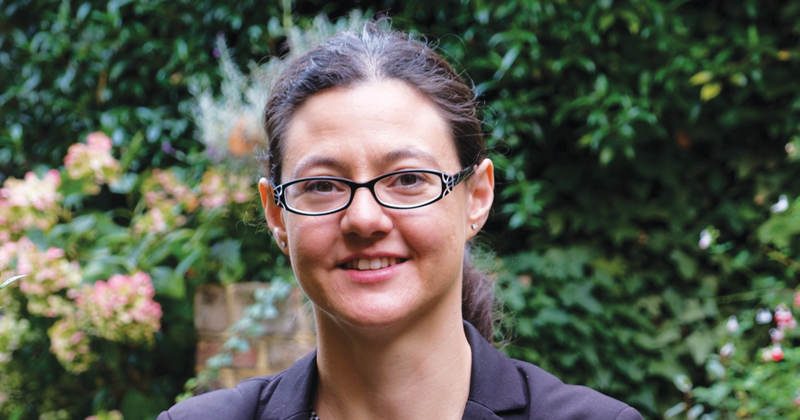














Your thoughts